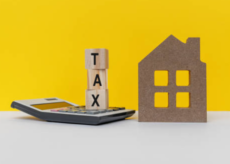USA: 3 Things to Know When Negotiating with Debt Collector

Generally, when a person in the United States fails to make payments on a debt owed to a lender, this indebtedness is taken over by a debt collector, who will then take on the responsibility of making sure that you meet the original lender’s financial obligation.
However, you should know that in the event that you have to deal with a debt collector, you may be able to negotiate the settlement of the debt.
This article provides information on how to effectively negotiate a settlement with a debt collector without putting a strain on your personal finances.
(1) Get detailed information about the debt
According to the U.S. Consumer Financial Protection Bureau (CFPB), any debt collector that contacts you must provide information within five days of contacting you.
This information includes:
1) The name of the original creditor or lender
2) The exact amount you owe
3) Notification that you can dispute the debt, as well as request the name and address of the original creditor
In the event you do not recognize the name of the creditor, you have the right to ask what the original debt was (i.e., if it was a credit card default, a foreclosure price dispute, a loan you do not know about, etc.). Also remember that you have rights against debt collectors that you can enforce to avoid harassment by these individuals.
(2) Plan a realistic payment proposal
Once you have acknowledged your debt, it is time to take the next step: organize a payment plan according to your personal finances.
There are a few considerations you should keep in mind when planning a realistic payment plan, including:
1) How much you can afford to pay each month
For this, it is convenient to review what your priority financial commitments are, since falling behind with one or another account can cause more problems than relief.
2) Prepare a summary of your net monthly income, as well as all your monthly expenses
You should include the amount you want to pay each month to pay off the debt the debt collector is recovering. While doing this, you should also separate out part of your income to cover contingencies and emergencies.
3) Decide the total amount you are willing to pay to settle the debt.
This can be done through a lump sum or a series of payments. The CFPB strongly recommends that you do not pay more than you can afford.
(3) Time to negotiate with the debt collector using the payment plan you developed.
Once you have completed your payment plan, you will need to explain your plan to the debt collector.
The CFPB recommends that you reasonably detail your financial situation, as you may have a better chance of negotiating with the debt collector than with the original creditor.
Once you’ve worked out a payment plan, it’s a good idea to keep a record of this agreement in writing, including any promises from the debt collector. This should be done before you make any payments.


Hi, I am Nikesh Mehta, owner and writer of this site. I’m an analytics professional and also love writing on finance and related industry. I’ve done online course in Financial Markets and Investment Strategy from Indian School of Business. I can be reached at [email protected].



